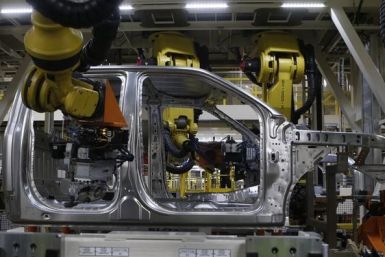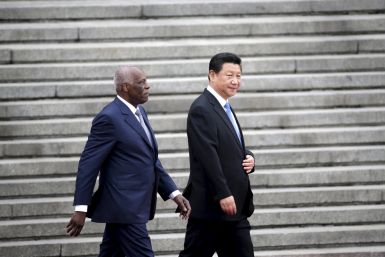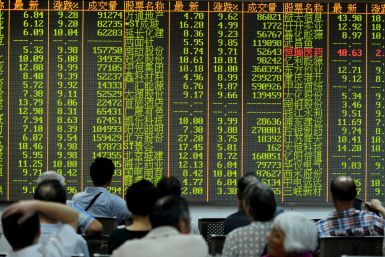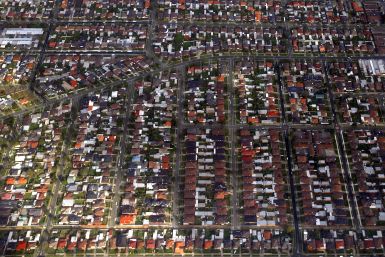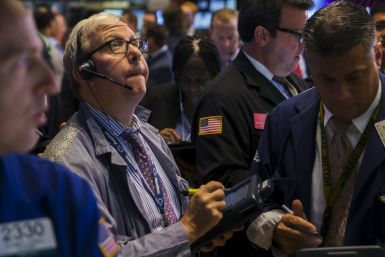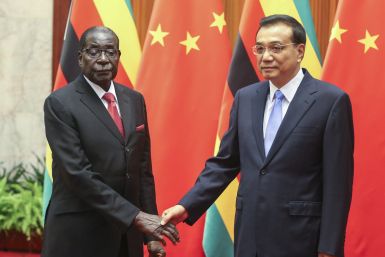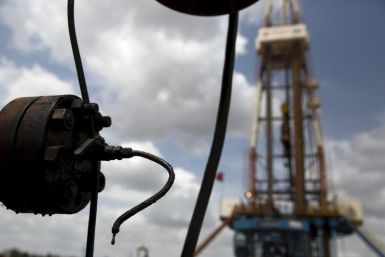Weaker demand for some U.S. products is due, in part, to China's economic woes, some Federal Reserve districts say.
China's troubles and the stock market's turmoil haven't derailed the U.S. housing recovery -- yet.
This measurement will inform conservation efforts and climate policy for years to come.
A monthly survey that tracks car-buying sentiment in China shows fewer plan to make a purchase over the next 12 months.
The jump was especially pronounced for borrowers looking to buy expensive houses.
Slowdowns in mining and construction, along with lower exports, made for a slow growth rate in Australia.
China's plan to raise $15 billion for a market stabilization fund failed to reassure investors, amid concerns about growth in China and the U.S.
Falls on global markets continue to affect investor sentiment in Asia, though Chinese shares rebounded by late morning.
Although economists expected an uptick in growth, U.S. manufacturing saw a downturn in August, to its lowest level in more than two years.
Newsstand sales of periodicals are now half of what they were in 2007, when Apple released its mobile device, data show.
The oil-dependent African nation has looked to China for aid and investment, but is facing an economic crisis as crude prices fall and China's financial woes persist.
More people are cycling these days, but the U.S. bike infrastructure is still lacking.
A total of 50 brokerage houses are said to be planning to pump 100 billion yuan into the government-backed margin finance agency.
More and more workers in industries and cities across the country are calling for a $15 an hour minimum wage.
Experts say that China's economic slowdown and currency devaluation may actually spur investment in overseas property, as investors seek more stable environments.
Americans are less worried about their pay being cut, but numbers have yet to return to pre-recession lows.
Economists forecast Canada's economy will contract for a second consecutive quarter.
Germany is expecting between 240,000 and 460,000 new refugees in the coming year, which translates to a heavy additional burden on Germany's social spending.
Global stocks tumbled Tuesday after China offered fresh evidence of a sharper-than-expected economic slowdown.
Zimbabwe's President Robert Mugabe is looking to China for help reviving his country's sinking economy, but Beijing is grappling with its own economic setbacks.
The Nigerian naira devalued by N5 to N220 per U.S. dollar as Nigerians seek the United States currency to pay for school abroad and the annual hajj pilgrimage to Mecca.
Within the economic bloc, however, wide disparities persist with Germany showing an unemployment rate of 4.7 percent while Greece reported one in four people without a job.
The country's benchmark index fell nearly 700 points, or 2.5 percent, Tuesday after first-quarter growth slowed to 7 percent.
The RBA's decision came as the Australian dollar continues to hover around its weakest level in over six years.
Official figures on China’s manufacturing output have confirmed the continuing slowdown in the nation’s economic growth, prompting further falls on Asian stock markets.
In the biggest three-day rally since 1990, U.S. oil prices extended their gains Monday after data revealed crude output was lower than previously expected.
Recent oil industry trends could pose a greater threat to the state's coffers than global policies to curb use of fossil fuels.
Labor unions are praising a National Labor Relations Board decision in a "joint employer" case, but businesses say it's a government overreach that could hurt their bottom line.
"Today's continuing pressure on prices ... remains a cause for concern for OPEC and its members -- indeed for all stakeholders in the industry," OPEC said in its most recent bulletin.
Most teenagers say parents play a big role in deciding whether or not to drink.


















